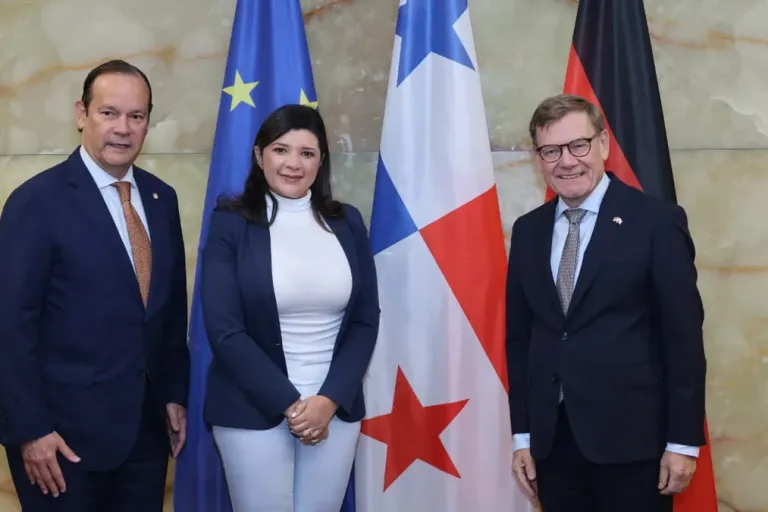In a significant move to strengthen international relations, Panama’s Minister of Foreign Affairs, Javier Martínez Acha-Vásquez, met with his German counterpart, Johann Wadephul, in Berlin. This high-level meeting, part of Minister Martínez Acha-Vásquez’s European tour, marks a pivotal moment in the long-standing Panama and Germany bilateral relationship. The discussions focused on deepening economic collaboration, political dialogue, and cultural exchanges, reinforcing Panama’s position as a key strategic partner for Germany in Central America. This article delves into the specifics of this strengthened alliance, exploring the historical context, the concrete agreements made, and what this means for future investment and cooperation between the two nations.
A Historical Foundation: The Enduring Panama-Germany Relationship
The diplomatic ties between Panama and Germany are not a recent development; they have been formally established since December 1951. This long history provides a stable foundation for the current partnership. A crucial milestone in this relationship occurred in 1988 when Germany became one of the signatories to the Treaty Concerning the Permanent Neutrality and Operation of the Panama Canal. This early endorsement highlighted Germany’s recognition of Panama’s strategic global role and its commitment to stability in the region. Understanding this historical context is key to appreciating the depth and significance of the recent talks in Berlin.
Why Historical Ties Matter for Modern Diplomacy
Long-standing diplomatic relationships create a framework of trust and mutual understanding. For Panama and Germany, over seven decades of formal relations mean that new agreements are built upon a proven track record of cooperation. This reduces risk for investors and creates a more predictable environment for joint initiatives in trade, security, and cultural projects. It signals to the international community that both nations are reliable and committed partners.
Key Outcomes of the Berlin Meeting: Strengthening Political and Economic Bonds
The meeting between the two foreign ministers yielded several concrete outcomes designed to institutionalize and expand the partnership. Both officials agreed to a framework for sustained engagement, moving beyond one-off discussions to a more structured and predictable dialogue.
Enhanced Political Dialogue and Multilateral Support
A primary outcome was the agreement to strengthen political dialogue through regular technical-level meetings. This ensures that collaboration is continuous and not solely dependent on high-level summits. Furthermore, Panama’s Foreign Minister expressed gratitude for Germany’s support in the country’s removal from the European Union’s list of high-risk jurisdictions in July 2025. This delisting is a significant diplomatic and economic victory for Panama, improving its international standing and facilitating smoother financial transactions and trade with EU member states. Minister Martínez-Acha Vásquez also formally expressed Panama’s interest in becoming a full member of the Organisation for Economic Co-operation and Development (OECD), a move that would align the country with the world’s most developed economies.
Boosting Economic Investment and Trade
On the economic front, Panama actively extended invitations to Germany to participate in major upcoming events, including the Second Latin American Economic Forum in January 2026 and the prestigious Expocomer trade fair in March 2026. More importantly, the Panamanian minister directly encouraged German companies to invest in the country’s flagship infrastructure projects. These strategic opportunities include:
- The Panama-David Train: A major railway project aimed at improving connectivity across the country.
- New Canal Ports: Expansion projects to bolster the capacity and efficiency of the Panama Canal.
- The Río Indio Dam: A critical infrastructure project for energy and water resource management.
This push for foreign direct investment is part of a broader national strategy to fuel economic growth. For context on domestic economic priorities, understanding the cost of living is crucial. You can learn more about this in our analysis of Panama’s basic food basket.
Future Collaboration: Agreements on Cooperation and Global Participation
Looking beyond immediate economic interests, the meeting laid the groundwork for extensive future collaboration across multiple sectors, demonstrating a comprehensive and forward-thinking approach to the bilateral relationship.
Upcoming Multilateral Engagements
Panamá confirmed its participation in the Munich Security Conference in 2026, a premier global forum for debating international security policy. This indicates Panama’s growing role in global security discussions. The country also highlighted the commemoration of the Bicentennial of the Amphictyonic Congress of Panama in June 2026, a historically significant event that underscores Panama’s legacy as a hub for international dialogue and integration.
Negotiating New Frameworks for Partnership
Both nations expressed a shared interest in negotiating several key agreements to formalize their cooperation:
- A Framework Agreement for Technical, Scientific, Educational, and Cultural Cooperation.
- Agreements on Investments and Fiscal Cooperation.
- A pact for the Exchange of Tax Information.
These frameworks are essential for creating clear rules and pathways for joint projects, research initiatives, and business ventures. This kind of technical and educational cooperación is vital for long-term, sustainable development. Germany formally recognized Panama as a strategic ally in the region, emphasizing a shared vision for a sustainable relationship based on security cooperation, economic development, and the fight against organized crime. This aligns with broader nacional goals for stability and progress.
What This Strengthened Partnership Means for Panama and Germany
The reinforced alliance between Panama and Germany is a win-win scenario with far-reaching implications. For Panama, it means increased foreign investment, enhanced technical expertise, and a stronger voice on the global stage. For Germany, it solidifies a reliable economic and political partner in a dynamic and strategically important region, providing access to one of the world’s most significant logistical hubs.
This partnership exemplifies how modern diplomacy works: building on historical ties to create concrete opportunities for economic growth, cultural exchange, and mutual security. As these plans unfold, the continued collaboration between Panamá and Germany will be a relationship to watch, promising benefits for both nations and the wider region. For more information on the historical context of the Panama Canal’s neutrality, a key element of this relationship, you can refer to the Panama Canal page on Wikipedia. Additionally, details on Germany’s foreign policy objectives can be found on the website of the German Federal Foreign Office.



